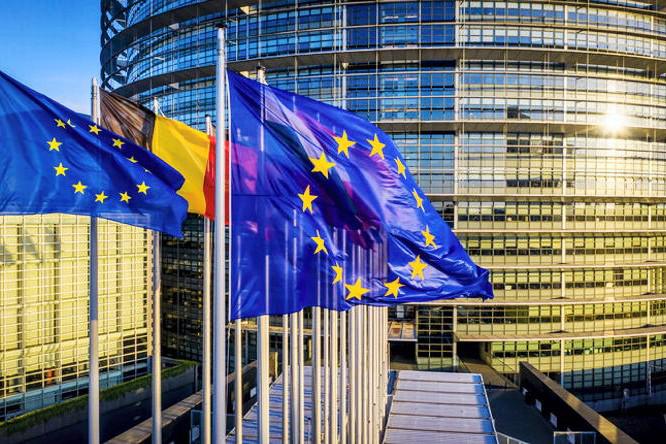Agri food goods produced and/or processed in NI should
continue to be able to access EU trade deals with third
countries, Irish Foreign Affairs Minister Simon Coveney has said.
Speaking at an Irish Farmers Journal webinar on Tuesday, the Minister highlighted that the Irish protocol within the Brexit Withdrawal Agreement means that NI will follow EU rules for goods from 1 January 2021, allowing companies in NI to trade unfettered into the EU.
However, NI remains part of the UK customs territory, so while agri food businesses will have to work to EU standards, they will find themselves excluded from being able to access EU trade deals under country of origin rules.
At present the EU has trade agreements in place with 60 third countries. While the technical detail within each deal can vary, in general, they specify that imported product must originate from an EU member state.
Milk worries
Of most immediate concern is the 800m litres of NI milk that is processed south of the Irish border each year. The majority of that is Lakeland Dairies milk, which is mixed with Republic of Ireland (ROI) milk, and processed and sold into countries around the world, often under the terms of EU trade agreements.
“What I don’t want to see in the future is Lakeland Dairies having to separate their milk pools – NI milk versus ROI / EU milk” said the Minister.
Coveney accepts that the issue reaches much wider than just the dairy industry, with lambs, cattle, pigs and poultry all traded across the Irish border, and therefore potentially falling foul of country of origin rules.
At the same time, Minister Coveney also warned that this will not be straightforward to resolve, and if the EU agrees to his request, it will have to approach each individual third country to have existing deals amended.
The UK government would also have to be agreeable. It is currently in the process of trying to roll over existing EU trade deals, and by the middle of this month had signed 22 agreements which will take effect from 1 January 2021.
In theory, if there was willingness on all sides, there is no reason why NI companies couldn’t access both EU and UK trade deals.
“That would be important for integrated trade across the island. It would make an awful lot of difference” said NI Meat Exporters Association chief executive, Conall Donnelly.
Read more
2020 Vision: 'No more transition periods. Time is up.’
2020 Vision: chlorinated chicken debate still has legs
Agri food goods produced and/or processed in NI should
continue to be able to access EU trade deals with third
countries, Irish Foreign Affairs Minister Simon Coveney has said.
Speaking at an Irish Farmers Journal webinar on Tuesday, the Minister highlighted that the Irish protocol within the Brexit Withdrawal Agreement means that NI will follow EU rules for goods from 1 January 2021, allowing companies in NI to trade unfettered into the EU.
However, NI remains part of the UK customs territory, so while agri food businesses will have to work to EU standards, they will find themselves excluded from being able to access EU trade deals under country of origin rules.
At present the EU has trade agreements in place with 60 third countries. While the technical detail within each deal can vary, in general, they specify that imported product must originate from an EU member state.
Milk worries
Of most immediate concern is the 800m litres of NI milk that is processed south of the Irish border each year. The majority of that is Lakeland Dairies milk, which is mixed with Republic of Ireland (ROI) milk, and processed and sold into countries around the world, often under the terms of EU trade agreements.
“What I don’t want to see in the future is Lakeland Dairies having to separate their milk pools – NI milk versus ROI / EU milk” said the Minister.
Coveney accepts that the issue reaches much wider than just the dairy industry, with lambs, cattle, pigs and poultry all traded across the Irish border, and therefore potentially falling foul of country of origin rules.
At the same time, Minister Coveney also warned that this will not be straightforward to resolve, and if the EU agrees to his request, it will have to approach each individual third country to have existing deals amended.
The UK government would also have to be agreeable. It is currently in the process of trying to roll over existing EU trade deals, and by the middle of this month had signed 22 agreements which will take effect from 1 January 2021.
In theory, if there was willingness on all sides, there is no reason why NI companies couldn’t access both EU and UK trade deals.
“That would be important for integrated trade across the island. It would make an awful lot of difference” said NI Meat Exporters Association chief executive, Conall Donnelly.
Read more
2020 Vision: 'No more transition periods. Time is up.’
2020 Vision: chlorinated chicken debate still has legs









SHARING OPTIONS